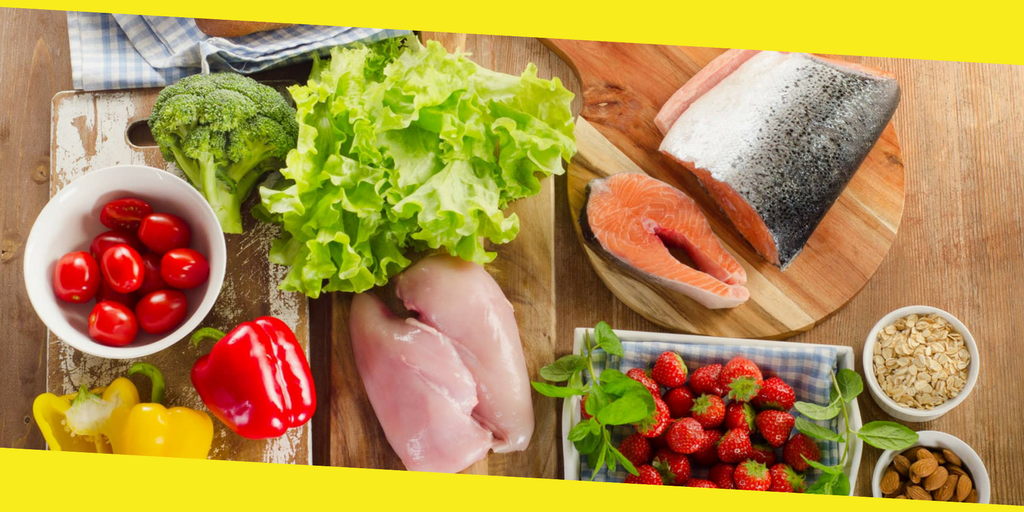Gluten-Free Diet: Top 5 Foods You Need to Avoid
Gluten Foods You Need to Avoid
Are you seeking to adopt a gluten-free for medical reasons, or is it a matter of preference? Well, whichever reason that steers you to a gluten-free diet, it is likely that you will experience frustration determining which foods you should avoid and which you need to include in your diet.
If you are in such a fix, I am here to help. I will share with you the top gluten foods you need to avoid. However, a little dive into the statistics won’t hurt, will it?
As held by the national Diabetes, Kidney, and Digestive Disease Institute, an average of 1 in every 133 Americans suffer from the celiac disease, an autoimmune disorder with high severity. The consumption of gluten foods has been associated with a higher risk of this disorder which results in the damage of the small intestines (1).
I would not want to see you get into trouble when observing a gluten-free diet. I have sampled what foods are not recommended for you, and why they need to be avoided. Enjoy and learn!
1. Grains
You must have heard of Golden Rules in various fields. Well, there is such a rule for those who wish to follow a gluten-free diet religiously. As the Golden Rule stipulates, you need to avoid grains if you are to avoid gluten-triggered reactions in your body. Well, the rule wouldn’t make much sense if the foods to avoid are not specified.
If you have an insatiable appetite for cakes, bagels, cereals, bread, cookies, muffins, or pasta, then you need to curb such craving. The list can only get longer, as there are many other foods which contain grains. Here, you need to look out for
- Breadcrumbs
- Pumpernickel
- Waffles
- Vermicelli
- Rye bread
- Pastries
- Spaghetti
- Pies
- Buns
- Pita
- Biscuits
- Croutons
- Doughnuts
- Cornbread
- Bran
- Rolls
However, all hope is not lost as most manufacturers are making gluten-free versions of these foods. Even as such, you still cannot trust these foods as they are not truly gluten free – they have some grain content.
Rice and corn are applauded as safe alternatives to these grain-based gluten foods. However, research further indicates that even though rice and corn could be naturally occurring gluten-free foods, they are unsafe as a result of gluten contamination (2).
As a result, carefully select and handle rice and corn to minimize contamination and use them as safe substitutes to gluten-rich grains. You can also include legumes, cassava, flaxseed, millet, buckwheat, and carrots in your diet.
2. Seasonings and Condiments
Could you be gluten-intolerant? Then you need to know that most seasonings and condiments are rich in gluten, and they are likely to cause problems for you. What if you have not been diagnosed with the celiac disease?
Do you need to worry? Yes, and for a reason.
Research by Australian authorities reveals that gluten can stir gastrointestinal distress even though you have not been diagnosed with the celiac disease. This condition is clinically referred to as the non-celiac gluten sensitivity (3).
Do avoid:
- Soy sauce
- Worcestershire sauce
- Malt products
- Modified food starch
- Barley malt
- Bouillon
Also, exclude salad dressings and gravies from your diet since use gluten-grains and flours for thickening.
If you have to savor the above, then their labels must plainly state that they are 100% gluten-free. You may also find safer alternatives including soy sauce, A1 steak sauce, mayonnaise, mustard, and branded McCormick’s seasonings.
3. Alcoholic Beverages
Here, I am confident to be at loggerheads with drink lovers. But the truth is most alcoholic beverages use grains as their main ingredient. Malted drinks including wine coolers as well as beer top this list.
It is recommended that you proceed with lots of caution if you have to drink any of the grain-based beverages like gin, whiskey, and some vodkas. There are assumptions that these drinks are safe after undergoing the distillation process amid claims that some patients are still showing signs of reactions to these grain-based drinks.
The Gluten Sensitivity Journal suggests that these drinks can only cause reactions if your villi have not undergone complete recovery and full adjustment to a gluten-free diet. Even though it is difficult to trust any grain-based alcoholic beverage, distillation is the surest way of eliminating all gluten from alcohol (4).
Therefore, settle for gluten-free alcoholic kinds of vinegar and beverages that have undergone distillation since the gluten peptide is too large to undergo distillation successfully. As a result, distilled liquors are gluten-free. Such brands as Malibu Rum, Omission Beer, Cîroc, Absolut Vodka, and Hennessy are gluten-free. You may also opt for sodas including Fanta, Sunkist, Pepsi, Gatorade, and Coca-Cola.
4. Processed Meat
By now, you know that processed foods are unhealthy. However, you could not be understanding how unhealthy processed foods could be with regards to celiac disease. Processed meat has high contents of preservatives which trigger cancerous growths. Some processed meats including deli meats have been shown to carry additives which potentially carry gluten.
Equally, there is an argument that meats obtained from animals that feed on grains could trigger reactions for gluten-intolerant people.
Such processed meats as salami, sausages, cold cuts, bologna, pate, pepperoni, hot dogs, and liverwurst contain high gluten contents as various gluten-rich grains are used to prepare them.
Find alternative gluten-free meats from fish, chicken, dove, pork, eggs, and lean beef.
5. Treats and Sweets
If you are being serious about being on a gluten-free diet, then you need to do away with those treats and sweets. As the Celiac Disease Foundation reveals, the reasoning behind these assertions is that these delicacies are made using flours and additives which contain gluten.
Therefore, you should ensure that you avoid all malt-based products, chocolate, root beer, ice cream, and cereal-extract candies.
It is essential that you check on the labels to determine whether the product you are purchasing is gluten-free. Otherwise, safer alternatives include snacks like Ruffles, Doritos, popcorn, and macaroons; ice cream from Talenti, Halo Top, and Turkey Hill, and sweets including Jolly Rancher, Laffy Taffy, Almond Joy, and 3 Musketeers.
Is Chia Seeds Gluten-Free?
Yes, it is. Chia seeds is 100% gluten-free. Also, it has a host of nutritional components like antioxidants, fiber, and omega-3 fatty acids in large quantities. Therefore, chia seeds make a convenient addition to whichever diet you have in mind, and it gives the body significant nutritional benefits. You can find the highest quality seeds in this article.
Use it or its flour for vegan and gluten-free baking needs. This food makes a perfect egg and binder substitute.
Is There Any Other Source of Gluten?
There are other less obvious sources of gluten. Mere exposure to these sources could trigger gluten intolerance reactions. Some of these different sources include skin lotions, make-up products, pet food, and shampoos.
It is essential to look out for hidden gluten as well products that could contain gluten as a result of cross-contamination.
What Do You Need to Do?
Remember, a product could naturally be gluten-free, but cross contamination during manufacture and packing could bring it into close contact with gluten-containing products. As a result, a gluten-free product ends up contaminated with gluten and is no longer is safe for those following a gluten-free diet.
Products from plants which produce both gluten-free and regular products using the same technology and machines are bound to be cross-contaminated with gluten content. Equally, you need to ensure that you use different surfaces and tools in your kitchen while preparing meals to avoid gluten cross-contamination.
You must also ensure that you have back up tools in your kitchen if you need to prepare a gluten-free meal. This measure will ensure that you avoid cross-contamination. Similarly, you need to be extremely careful when eating out.
While eating out is fun, it could worsen your gluten intolerance since most restaurants lack measures to ensure that their food is not cross contaminated.
BIO
Name: Amelia Johnson
Email: [email protected]
Web: StayHealthyWays.com
Follow me on Twitter Google Plus Facebook Pinterest
 Amelia is a writer/editor with an endless passion for bringing a lot of useful and trustworthy information to the community. She founded stayhealthyways.com, a blog dedicated to sharing quality articles related to health, nutrition, fitness, and beauty. As a typical introvert, Amelia is a perfectionist in work. At times of leisure, she reads, listens to music, chats with some close friends and walks with her pet.
Amelia is a writer/editor with an endless passion for bringing a lot of useful and trustworthy information to the community. She founded stayhealthyways.com, a blog dedicated to sharing quality articles related to health, nutrition, fitness, and beauty. As a typical introvert, Amelia is a perfectionist in work. At times of leisure, she reads, listens to music, chats with some close friends and walks with her pet.
Recommended For You
Medical Applications of Titanium
Most Inside
Most Inside offers high-quality recommendations and valuable updates to enhance all aspects of your life, providing premium guidance and enriching experiences.





